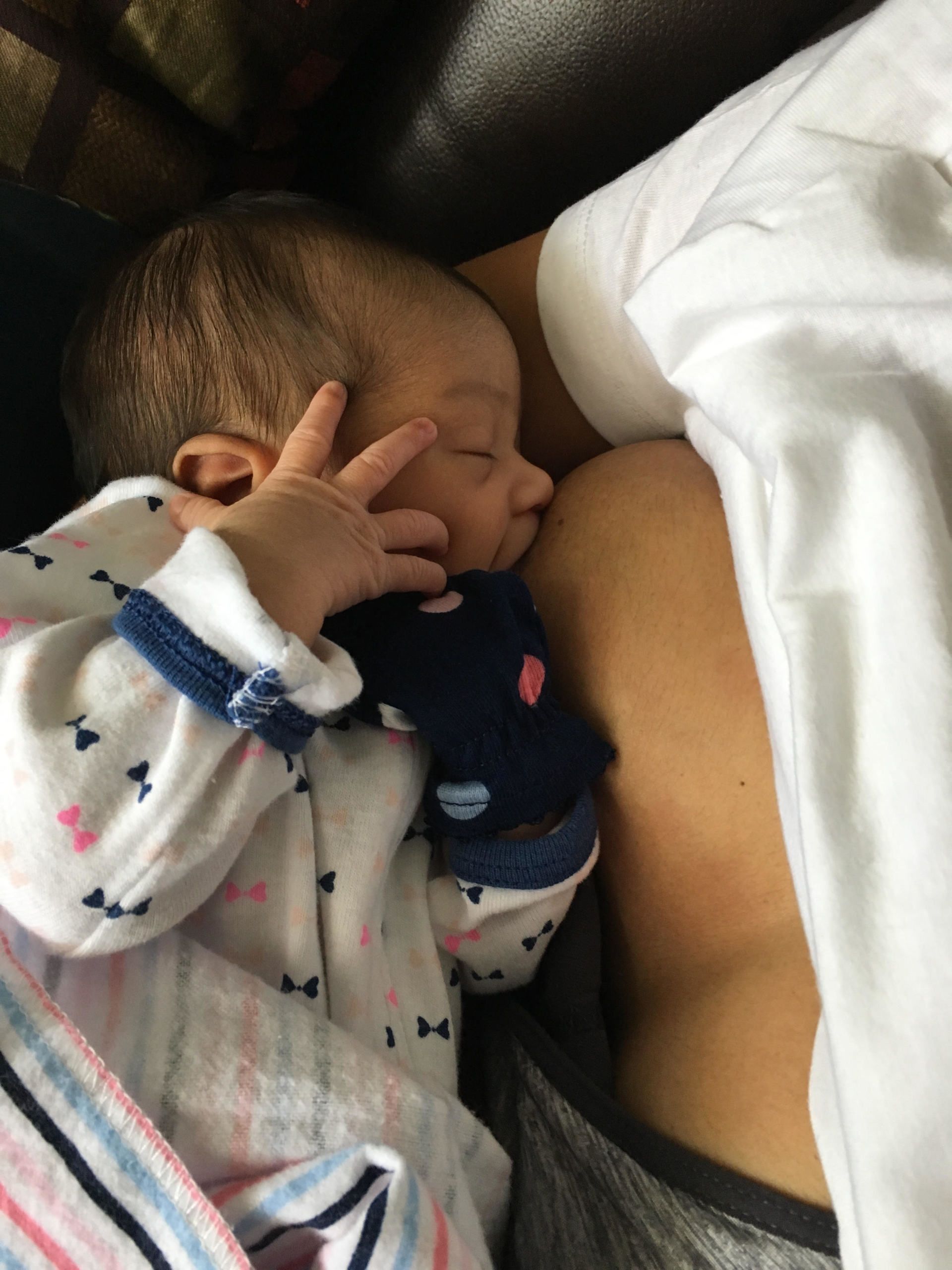Blog
Blog

By Ashley & Alexis
•
06 Aug, 2020
Given that World Breastfeeding Week is coming to an end (August 1-7 every year), we figured now would be a great time to address what will be one of the biggest parts of your mothering experience (if that’s what YOU want). When you arrive at the hospital, it’s common practice for us (nurses, doctors, anesthesia, housekeeping, nutrition services etc.) to bombard you with a MILLION questions. The “mom guilt”, through sometimes, snarky, comments has already started. It’s a sad truth, and one that really needs to change—a topic for another day. Anyways, one of those questions will most likely be, “are you going to breastfeed?” OKAY —we get what they’re trying to ask but the way it’s asked may make some mothers feel that their answer should obviously be yes. WRONG ! It’s extremely rude, in my opinion as a nurse and a mother. A better question is “how do you plan to feed your baby?” (what happened to all those lectures in nursing school teaching us to ask our patients open ended questions, not yes or no ones?) A quick side-note: we know that breastfeeding and breast milk is not only GREAT for babies but mothers as well. Don't get us wrong here; we love breastfeeding! The issue however, is that there’s been a huge push for EVERY mother to breastfeed. The fact is, it’s just not practical in our world today. More on this to come. Stick with me... The truth of the matter is, breastfeeding is not easy! Sure, people have been breastfeeding since the beginning of time (just like they've been having babies since the beginning of time and we all know labor isn’t a walk in the park either), that doesn’t mean it’s been easy all the time. Some of us may have a little more luck than others and our babies will latch right on to the nipple after birth (FACT: babies are born with an innate response to look for the nipple and begin breastfeeding). However, for most of us, although breastfeeding is instinctual in babies and women, they will still need some guidance and so will you mom and that's okay! Not to mention that there are a ton of things that can complicate breastfeeding (nipple size/shape, tongue tie, medications mom may be on etc.) It is important for us to acknowledge that issues may arise and that breastfeeding is not “one size fits all” for every mother. So if breastfeeding can be so hard, why is it so heavily promoted and encouraged? Well, there is no doubt that breastfeeding/ breast milk has more health benefits for both mom and baby, not to mention the emotional bond that comes along with it. For baby, there’s the immune support, developing the gut bacteria, reducing allergies, decreasing rates of meningitis, ear, urinary tract and blood infections, and more! For mom, evidence has shown that mothers who breastfed for longer periods of time had fewer incidences of breast and ovarian cancer, bone disease and lower risks for other diseases such as type 2 Diabetes. So again, YES the health benefits are strongly on the side of breast milk. Ok, so why would anybody consider formula? Well—the fact is some people just don’t make milk. Some don’t make enough milk. Some don’t have time to pump, and feed, and clean bottles and do all the other things that come with breastfeeding and providing your baby breast milk. Some moms who have to return to work sooner than later may not have time to pump while at work (although federal law does say your employer should be providing you with place and time to pump at work…check your state laws too!) So do we support breastfeeding here at Birthing Characters ? Yes! We love it and fully support any mother who plans to either exclusively or partially breastfeed. Do we believe that breastfeeding is the gold standard for feeding a newborn? Yes! All research and evidence supports that breast is best! HOWEVER …we also strongly believe A FED baby is a HEALTHY baby, whichever way you choose to feed your baby. So here you have two nurses, one being a mother and the other a Certified Lactation Counselor, telling you its okay not to breastfeed? YES! As we said before, breastfeeding is not one size fits all and will not work for every mother! The important thing is choosing a feeding option that works for you and your baby. One that's not going to give you angina every waking moment and one that will ensure your baby gets the nutrients they need (see our next blog post on how to choose a formula that will work for you!) With that being said, we want to help you thrive going into parenthood, not cause more stress. Our goal is to debunk the myths and give you the truth so you can do what works best for you. Whether you choose to breastfeed or formula feed, both will undoubtedly come with sacrifices. But it’s worth it. All the sacrifices for our babies, they’re worth it.

By Ashley Character MSN, APN, CNM
•
30 Jun, 2020
Ok so let’s get some professional roles clarified, shall we? When it comes to women’s health, most people have heard of an OB/GYN and can probably tell you why women often try to avoid seeing theirs. In fact, until I was about 18, I had never heard of a midwife or a doula! I thought OB/GYNs were the doctors for women through adulthood, who were able to deliver babies. So, let me break it down for those that have been misinformed, like myself, or may not know what a midwife or doula are. OB/GYNs are, indeed surgeons, therefore are medically trained professionals. They are trained and skilled doctors who have completed the minimum of a 4 year college degree, followed by medical school (usually another 4 years) followed by a residency (yes, 4 more years). They spend A LOT of time in school before they can actually be your doctor without supervision, which is good. We need OB/GYNs because they know all the stuff that can go wrong, and how to effectively fix it. Like I said, they’re surgeons, so they can cut you open and save your life, when/if it needs saving. Their schooling and experience is designed to teach them how to treat the ABNORMAL things women experience through their lives. These doctors are great resources and we need them to be available for when we need them most. Midwives are also medically trained professionals. Quick ah-ha moment here: midwife has an Old English origin meaning 'with woman'. Now, there are a few routes people can take to become midwives, but for the sake of not getting things overly complicated, I’ll stick to the route of a certified nurse midwife (CNM) because I know it quite well. If you’re interested, we can talk about the other types of midwives in the comments. Certified nurse midwives are registered nurses first, then complete a master’s degree program to allow them to take their certification exam. Most states recognize CNMs as advanced practice providers and they can practice midwifery care according to their state guidelines. CNMs are NOT surgeons and are trained and educated to take care of NORMAL things women experience in their lives. CNMs can counsel and support women about birth control, regular health screenings, normal pregnancy care, vaginal births, postpartum and through menopause. If, for any reason, you develop complications, the CNM will consult with, or refer you to, their OB/GYN friend—see why it’s good to have them? CNMs vary greatly with OB/GYNs in their ability to connect with women—oh, look! That phrase again—and form relationships that offer a feeling of openness and honesty. Remember, they are nurses first, so the CNM approach looks at women as whole persons and considers each patient individually when assisting them in creating a plan for their health. CNMs practice in a model that does not encourage interventions and supports allowing a woman’s body to do what it was created to do and make their own informed decisions. (I’m summarizing a lot, but again, not trying to lose you.) A provider that knows what’s normal and when things aren’t and what to do about it? Yeah, a lot of women need that in their lives. Doulas are not medically trained professionals. They can be certified through a variety of programs or agencies, but there are no overseeing organizations to regulate their practice, at this time. Doulas are trained using the apprenticeship model, which means they often learn on the job and by a teacher currently in that role. Doulas are one-on-one support for women and their families. The definition of a doula may vary by the type of doula you may ask. Now, I don't want to lose you so let me explain what I mean by "type of doula”. There are labor support doulas, postpartum doulas, breastfeeding doulas, and many more. Essentially, a doula assists a birthing woman. They will provide comfort measures in labor, such as: aromatherapy, positioning recommendations, massage, hydration and nutrition support and much more. A postpartum doula may recommend vaginal recovery therapies, emotional support or whatever the birther and family need as they transition. Breastfeeding doulas are very specific in that they offer breastfeeding advice and support to breastfeeding mothers. They may have breastfeeding positioning tips and tricks, suggestions on how to increase milk supply and nutrition advice for colicky babies. There is a ton of current evidence that suggests that women who have continuous labor support (labor doula) have lower rates of c-sections and NICU admissions. Wow, if the data says they have good results, why don’t all women have a labor doula?! (Rhetorical question, but I could rant on this at a later time.) I hope I haven’t lost you. I know, this is a lot of information and you really just want to know what you need? So, let me sum it up for you so you can get on with your life! Basically, if you do not have pre-existing conditions such as: diabetes, heart complications requiring regular monitoring, a seizure disorder that you are actively taking anti-seizure medication for, cancer that is currently being treated or an autoimmune disorder*, you should be seeing a CNM! If you do have any of the above mentioned conditions, you need an OB/GYN. If you are pregnant or planning to get pregnant, you would benefit from having a doula. Use this link for help finding a CNM near you https://www.midwife.org/find-a-midwife ~This is not an ad~ *This is not an all-inclusive list and some other conditions may require obstetrician consultation
